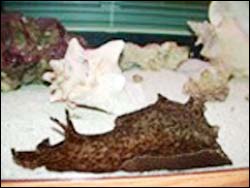They hadn’t planned it, but Meriwether Lewis and William Clark picked a fine time for a road trip when they set out to find a water route across the American Northwest two centuries ago.
Leading a small group of explorers, known as the Corps of Discovery, Lewis and Clark experienced favorable climatic conditions from 1804 to 1806 in search of an inland “Northwest Passage,” according to a Georgia State University professor.
The timing of the trip was crucial because ha
Scientists at the U.S. Geological Survey are closely watching the long, thin barrier islands that comprise the Gulf of Mexico coast of west Florida as Hurricane Ivan approaches. These islands are particularly vulnerable to storm surge and coastal change during hurricanes because of their low elevation. New elevation maps show just how vulnerable.
“If Hurricane Ivan comes ashore on west Florida’s barrier islands as a major hurricane, Category 3 or stronger, most of the coast has the potenti

For many years scientists have believed they understood how closely related species that occupy the same regions of the ocean were kept from interbreeding. It turns out they were only seeing part of the picture.
New research from the University of Washington’s Friday Harbor Laboratories shows that common assumptions about sea urchin reproduction don’t hold true for all species of the invertebrate creature. The work could lead to better understanding of fertilization among mammals,
Scientists have long recognized the importance of oceans in our climate. In fact, the unique physical characteristics of our oceans are largely responsible for making the Earth a livable environment. Oceans are major “climate-controllers” because of their large heat capacity. For instance, it requires four times the amount of energy to raise the temperature of water by one degree than it does soil. As a result, over a long period, oceans can store and transport heat from one location to another. Fur

From mollusks to mammals, newly discovered chemical pathways of serotonin in the nervous system are paving a path toward future pharmaceutical treatments for depression and other disorders.
“Understanding novel serotonin pathways in a tissue-dependent manner is useful for the development of pharmaceuticals intended to preserve serotonergic signaling,” said Jeffrey N. Stuart, a doctoral student in the department of chemistry at the University of Illinois at Urbana-Champaign.
Plankton poo could be the key to understanding how much carbon dioxide our oceans can store according to Tasmanian researcher Dr Karin Beaumont.
The greenhouse effect is arguably humanity’s greatest environmental threat. “We need to understand where and how carbon dioxide is stored in the oceans. Part of the answer lies in the poo of microscopic zooplankton: does it float or does it sink?” said Karin. “Heavy poo that sticks together and sinks to the ocean floor is good. It locks u